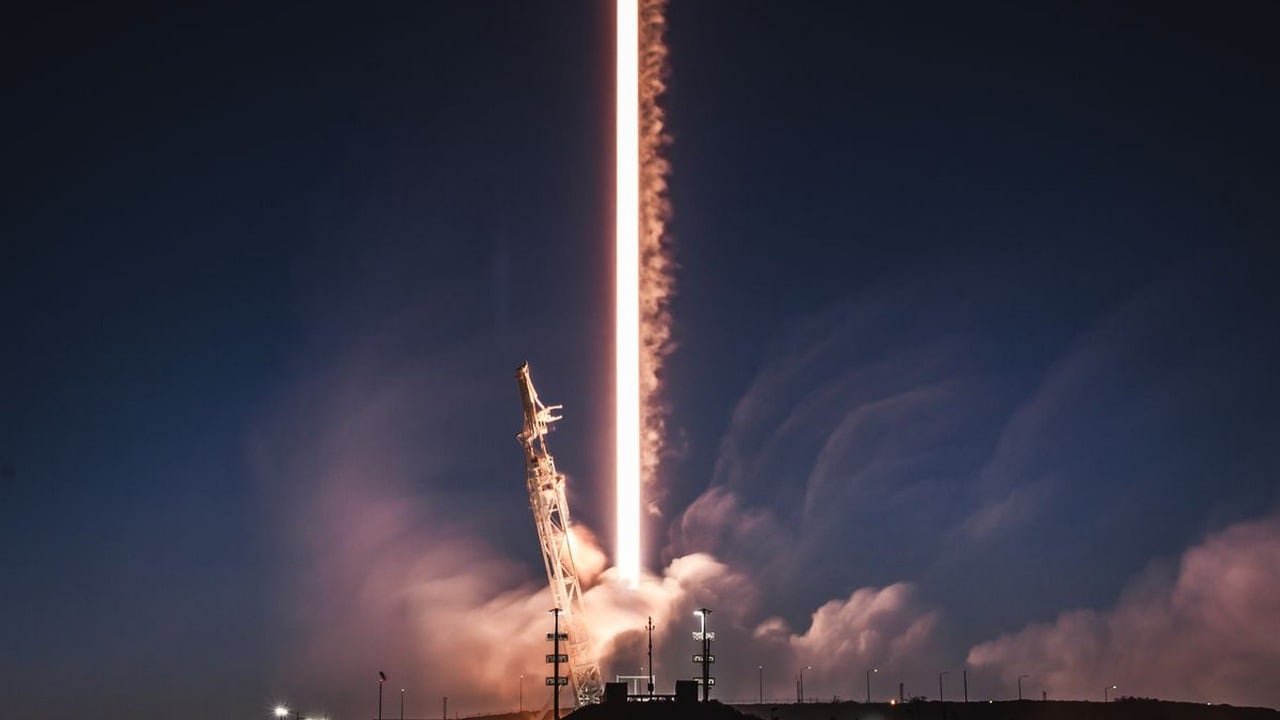tech2 News StaffApr 28, 2019 09:34:51 IST
The US Federal Communications Commission has approved SpaceX’s plans to fly a fleet of internet-transmitting satellites, Starlink, at an orbit lower than originally planned.
As per a report by The Verge, SpaceX originally planned to launch 4,425 Starlink satellites to ranges between roughly 1,110 to 1,325 kilometers. This plan won the FCC’s approval in early 2018. But the company later decided based on test data that it would like 1,584 of those satellites to orbit at the much lower height of around 340 miles (550 kilometers).
SpaceX reasoned that lower elevation would allow it to cut latency down to 15 milliseconds and cut the total number of satellites by 16 without reducing coverage. The company also said the lower altitude would allow any satellites that lose orbit to begin burning up quickly instead of clogging Earth orbit with space junk, something that was the concern of a recent NASA study.

SpaceX Falcon 9 rocket, launching SpaceX’s two test Starlink satellites. Image: SpaceX
Competing satellite internet firm OneWeb and satellite operator Kepler Communications both filed against the plan, claiming that Starlink could cause signal interference at the lower elevation and potentially even pose a collision risk. In its approval, the FCC found that “the modification proposed by SpaceX does not present significant interference problems and is in the public interest.”
The FCC added that SpaceX claims “because all its satellites have propulsion and are maneuverable to prevent collisions, they are considered to pose zero risk to any other satellites in this orbital region,” as well as that the company says “operating satellites at the 550 km altitude will ensure a 100 percent success rate of post-mission disposal within 5 years, even assuming worst-case conditions.”
The body also concluded that SpaceX’s estimate of collision risks in the case a satellite’s propulsion systems become inoperable “is well within accepted boundaries… even with worst-case assumptions that go well beyond any realistic scenario.”
In a statement, SpaceX president Gwynne Shotwell told The Verge, “This approval underscores the FCC’s confidence in SpaceX’s plans to deploy its next-generation satellite constellation and connect people around the world with reliable and affordable broadband service.”
While beaming down the web from satellites sounds like a great idea, numerous other companies have run into problems with their own similar projects. Facebook’s Project Athena, after failing to get drones to work properly, turned to satellites with the aim of launching one by early 2019 which the company hasn’t yet. Similarly, Google is working on Project Loon, which aims to transmit LTE to remote regions of the world with hot air balloons, but it has run into numerous crashes and is facing a major patent lawsuit. Amazon has also announced its own initiative.
SpaceX has already produced a bunch of Starlink satellites and is on track to start launching them in May.
Tech2 is now on WhatsApp. For all the buzz on the latest tech and science, sign up for our WhatsApp services. Just go to Tech2.com/Whatsapp and hit the Subscribe button.
Post a Comment